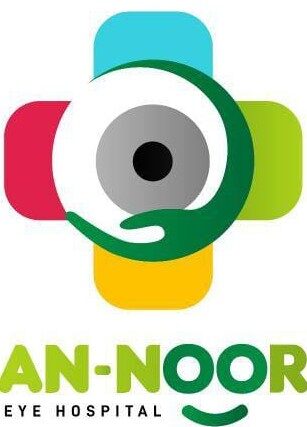Regular vision tests are essential for maintaining healthy eyesight, especially in today’s digital era. With increasing screen time and rising refractive errors across India, routine eye checkups play a key role in early diagnosis and prevention of major eye problems. For children, seniors, working professionals and individuals with existing eye conditions, these tests help identify issues at the earliest stage.
For anyone looking for a vision test in Chennai, eye checkup in Chennai or the best eye hospital in Chennai, Annoor Eye Hospital offers complete vision evaluation backed by advanced diagnostics and experienced ophthalmologists.
What Is a Vision Test?
A vision test is a series of simple and detailed assessments that measure how well your eyes function. It goes beyond checking your lens power. It also helps detect early signs of eye diseases, eye movement issues and complications caused by diabetes or age.
There is a difference between a basic screening, which is a quick check-up, and a comprehensive eye examination, which evaluates every part of your eye. People who wear glasses, seniors, diabetics and children need frequent and thorough eye tests to protect long-term vision.
Step-by-Step: What Happens During a Vision Test
Below is a clear, step-wise breakdown of a standard vision test. These steps help you understand what happens during your appointment and help answer common People Also Ask queries.
1. Medical and Lifestyle History Review
Your doctor begins by reviewing your medical background. This includes:
• Family history of eye diseases
• Current symptoms
• Work habits and screen exposure
• Any medications that affect vision
This step helps personalise the entire examination.
2. Visual Acuity Test (20/20 Vision Check)
This is the most common test where you read letters on a Snellen chart. It measures clarity of sight.
What 20/20 vision means:
It simply indicates that you can see at twenty feet what a normal eye should see at twenty feet. It does not mean perfect vision.
3. Refraction Test (Lens Power Measurement)
This is used to determine your exact prescription for glasses or contact lenses.
It helps detect:
• Myopia
• Hypermetropia
• Astigmatism
The doctor places different lenses in front of your eyes until the clearest vision is achieved.
4. Eye Muscle and Movement Evaluation
This test checks how well your eyes work together. It helps detect:
• Strabismus
• Focusing difficulties
• Eye coordination problems
These issues are especially important to diagnose in children.
5. Slit-Lamp Examination
A slit-lamp microscope provides a magnified view of:
• Cornea
• Iris
• Lens
• Front portion of the eye
This exam detects early cataracts, corneal infections and allergies.
Internal link: For a detailed cataract evaluation, visit https://annooreyehospital.com/cataract
6. Eye Pressure Test (Tonometry)
High pressure inside the eye is a warning sign for glaucoma. This quick test is crucial for early detection because glaucoma often shows no symptoms in the beginning.
7. Retina and Optic Nerve Evaluation
This includes a dilated fundus examination to check the inner layers of the eye. It helps identify:
• Diabetic retinopathy
• Macular degeneration
• Retinal tears or detachment
How Long Does a Vision Test Take?
A complete eye checkup generally takes between 20 to 40 minutes.
A comprehensive exam may take longer if dilation or detailed retinal imaging is required.
What to bring:
• Old glasses or contact lenses
• Previous prescriptions
• Any medical reports
• A list of current medications
Who Needs a Vision Test More Frequently?
Some groups require more regular eye testing:
• Children below 12
• People who use digital screens for long hours
• Diabetics
• Seniors above 50
• Anyone with existing eye conditions
• People experiencing persistent eye strain
For detailed hospital information, you can refer to the About/General Ophthalmology page on the Annoor website.
Symptoms That Indicate You Need a Vision Test Immediately
You should book an eye checkup soon if you experience:
• Blurred vision
• Headaches
• Double vision
• Eye strain
• Difficulty seeing at night
• Frequent eye rubbing (in children)
These symptoms should never be ignored because early diagnosis prevents complications.
What Conditions Can Be Detected During a Vision Test?
A vision test can identify several eye conditions, such as:
• Refractive errors including myopia and astigmatism
• Cataracts
• Glaucoma
• Retinal disorders
• Dry eye
• Corneal infections
• Pediatric eye issues including lazy eye
These findings help your doctor plan the right treatment on time.
How Often Should You Get Your Eyes Tested?
Recommended testing frequency:
• Children and teenagers: Once every year
• Adults up to age 40: Every one to two years
• Adults above 40: Once a year
• Seniors above 50: Every six months
• Diabetics or high-risk groups: Every six months
Regular testing ensures early detection of refractive errors and silently progressing diseases like glaucoma.
Why Choose Annoor Eye Hospital for Your Vision Test?
Annoor Eye Hospital is one of the most trusted eye care centres in Chennai for complete vision assessment. Patients choose Annoor for:
• Experienced ophthalmologists and optometrists
• Advanced diagnostic technology
• Accurate prescriptions
• Thorough screening for eye diseases
• Comprehensive services under one roof
• Child-friendly pediatric eye care
Conclusion
A vision test is one of the simplest ways to safeguard your eyesight. Whether you work long hours on a computer, manage diabetes or have children who struggle with visual tasks, routine eye checkups are essential. Annoor Eye Hospital offers complete, accurate and comfortable vision testing for all age groups.
Taking a few minutes for an eye evaluation today can prevent major problems tomorrow. Schedule your vision test at a trusted centre and give your eyes the care they deserve.

